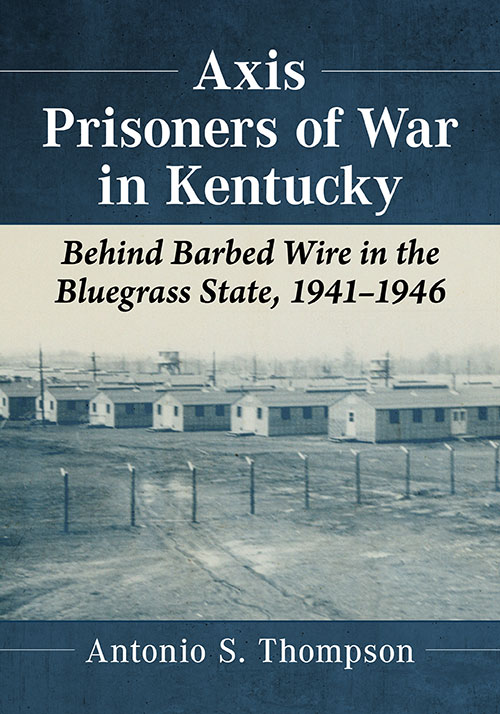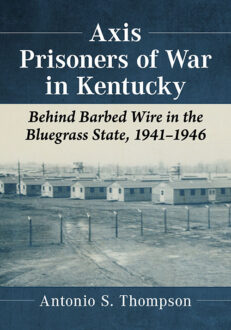Axis Prisoners of War in Kentucky
Behind Barbed Wire in the Bluegrass State, 1941–1946
$75.00
In stock
About the Book
During World War II, Kentuckians rushed from farms to factories and battlefields, leaving agriculture throughout the state—particularly the lucrative tobacco industry—without sufficient labor. An influx of Axis prisoners of war made up the shortfall. Nearly 10,000 German and Italian POWs were housed in camps at Campbell, Breckinridge, Knox and other locations across the state. Under the Geneva Convention, they worked for their captors and helped save Kentucky’s crops, while enjoying relative comfort as prisoners—playing sports, performing musicals and taking college classes. Yet, friction between Nazi and anti-Nazi inmates threatened the success of the program. This book chronicles the POW program in Kentucky and the vital contributions the Bluegrass State made to Allied victory.
About the Author(s)
Bibliographic Details
Antonio S. Thompson
Format: softcover (7 x 10)
Pages: 226
Bibliographic Info: 15 photos, notes, bibliography, index
Copyright Date: 2024
pISBN: 978-1-4766-8168-9
eISBN: 978-1-4766-5024-1
Imprint: McFarland
Table of Contents
Acknowledgments ix
Preface 1
1. The Depression, World War II, and the Kentucky Home Front 5
2. Kentucky Enters World War II 16
3. Working for the Enemy: Axis Labor in Kentucky, 1942–1944 32
4. The POW Labor Program, 1945–1946: Critical Manpower Shortages, the End of the War, and Full Employment 54
5. Holes in the Barbed Wire: Escapes of Prisoners of War 69
6. Problems with the POWs: Violence, Murder, and Nazi Influence Behind the Wire 88
7. The Good Life: Camp Life, Coddling, and Fraternization 112
8. Repatriation and the Results of the POW Program in Kentucky 140
Chapter Notes 155
Bibliography 195
Index 211





